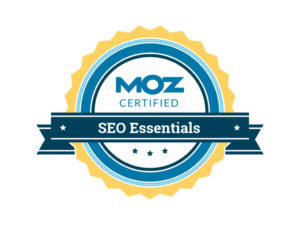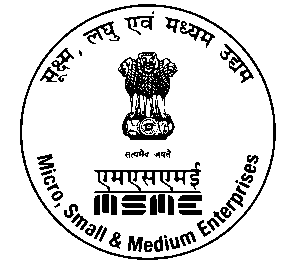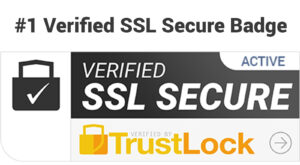In today’s competitive digital landscape, getting your business noticed by potential customers in your local area is more important than ever. Whether you run a small café, a boutique, or a service-based business, Local SEO is a game-changer. In fact, ranking for local searches—especially those with “near me” queries—can significantly boost foot traffic, sales, and customer engagement.
Consumers today use mobile devices and search engines to find nearby businesses that offer the products or services they need, and Local SEO helps you ensure your business is visible when potential customers search for what you offer. But how do you improve your chances of ranking for these highly targeted local searches?
In this blog, we’ll walk you through the best practices for local SEO to help you rank in “near me” searches, improve your local search visibility, and enhance your business’s online presence. Let’s dive in!
What is Local SEO?
Before we get into the best practices, let’s define Local SEO.
Local SEO refers to the process of optimizing your online presence so that you rank higher in search results when people search for businesses or services near them. For example, if someone searches for “best pizza near me,” local SEO helps your pizza restaurant appear in the search results for that query.
The goal of Local SEO is to increase your visibility in local search results, making it easier for people in your vicinity to find your business, whether they’re searching from their desktop or mobile devices. It includes optimizing your website, Google My Business (GMB) profile, local citations, reviews, and more.
Why Local SEO Matters for Your Business
1. Local Searches Lead to Immediate Action
According to recent studies, nearly 76% of people who search for something nearby visit a business within a day, and 28% of those searches result in a purchase. This makes Local SEO crucial for businesses that rely on local customers.
Whether it’s a consumer searching for a nearby restaurant, plumber, or retail store, having your business rank in local search results means you’re in the right place at the right time.
2. Increased Foot Traffic
When people search for businesses near them, they often visit the physical location. Getting your business to appear in local search results, particularly in the Google Local Pack (the map and business listings that appear at the top of local search results), significantly increases your chances of attracting foot traffic to your business.
3. Improved Visibility in Voice Search
With the rise of smart assistants like Google Assistant, Siri, and Alexa, voice search has become a significant driver of local queries. Many people use voice search to find businesses nearby by simply saying, “Hey Google, where’s the nearest coffee shop?” Optimizing your business for local SEO ensures you can also capitalize on this trend.
4. Gain Competitive Advantage
Local businesses face fierce competition. Implementing Local SEO best practices allows you to stand out from your competitors and secure a spot in the top local search results. A well-optimized GMB listing, a user-friendly website, and positive reviews can give your business a competitive edge.
Best Practices for Local SEO Success
Now that we know the importance of Local SEO, let’s discuss the best practices you can implement to improve your rankings in local search results.
1. Claim and Optimize Your Google My Business (GMB) Listing
Google My Business is one of the most powerful tools for local SEO. It allows you to control your business’s online presence on Google Search and Maps. When customers search for your business or services, your GMB listing is often the first thing they see.
Key Steps to Optimize Your GMB Listing:
- Claim Your Listing: If you haven’t claimed your GMB listing yet, do so immediately. It’s free and essential for local SEO.
- Complete Your Profile: Ensure that all information is accurate and complete, including your business name, address, phone number, website, hours of operation, and business category.
- Add Photos: Businesses with photos receive 42% more requests for directions and 35% more click-throughs to their websites.
- Encourage Reviews: Google reviews not only boost your credibility but also affect your rankings. Ask happy customers to leave positive reviews and respond to them promptly.
- Use GMB Posts: Regularly post updates, offers, events, or announcements to your GMB listing. Google favors active listings.
2. Optimize for “Near Me” Searches
A significant number of local searches include phrases like “near me,” “in my area,” or “close to me”. To rank for these queries, ensure that your website content and local listings are optimized for these phrases.
Tips for Optimizing for “Near Me” Searches:
- Include Location-Based Keywords: Use keywords such as “best Italian restaurant in [City]” or “plumbing services near me” in your website content.
- Optimize Your Meta Tags: Ensure your title tags, meta descriptions, and header tags include local keywords and location details.
- Use Structured Data Markup: Adding schema markup to your website helps search engines understand your business type, location, and other relevant details, which is crucial for local SEO.
3. Ensure Your Website is Mobile-Friendly
More than 60% of all local searches are conducted on mobile devices. For businesses to succeed in Local SEO, your website must be mobile-optimized.
Why Mobile Optimization Matters:
- Google’s Mobile-First Indexing: Google prioritizes mobile-friendly websites in its search results. If your website isn’t mobile-responsive, it could hurt your rankings.
- User Experience: Mobile-friendly websites provide a better user experience, which encourages users to stay on your site longer and complete desired actions, like calling your business or making a purchase.
4. Use Local Keywords and Content
To rank higher for local searches, make sure your website content reflects your local relevance. This includes using local keywords and producing content that resonates with the local audience.
Tips for Local Content:
- Blog About Local Events or News: Write blog posts related to local happenings, industry news, or community events. This not only helps with SEO but also shows that your business is involved in the local community.
- Create Local Landing Pages: If your business operates in multiple locations, create dedicated landing pages for each location with location-specific keywords.
5. Build Local Citations
Local citations are mentions of your business on third-party websites, such as local directories or review sites, even if there’s no link back to your website. These citations play a role in how search engines evaluate your business’s legitimacy and relevance to local searches.
Where to Get Local Citations:
- Local Business Directories: List your business on directories like Yelp, Yellow Pages, and local chamber of commerce sites.
- Industry-Specific Directories: If you’re in a niche industry, look for directories that cater to your sector.
- Local News Websites: Engage with local media outlets and get your business mentioned on local news websites.
6. Get More Positive Reviews
Customer reviews are one of the most significant factors in local SEO rankings. Google uses reviews to evaluate the reputation of your business, and businesses with more positive reviews tend to rank higher in local search results.
How to Get More Reviews:
- Ask Your Customers: Politely ask happy customers to leave reviews. Send follow-up emails or messages encouraging them to share their experience.
- Respond to Reviews: Engage with customers by thanking them for positive reviews and addressing negative ones professionally.
7. Optimize for Voice Search
Voice search is growing rapidly, especially for local searches. According to Google, 58% of consumers have used voice search to find local business information.
Tips for Voice Search Optimization:
- Answer Questions: Use natural language in your content and focus on providing concise, informative answers to questions that users might ask.
- Use Long-Tail Keywords: Voice searches often involve longer, more conversational queries. Include long-tail keywords like “Where can I find the best sushi in [City]?” in your content.
Success Stories of Local Businesses Improving Their Rankings
1. A Local Bakery’s Success Story
A local bakery in Chicago, “Sweet Treats Bakery,” saw a 35% increase in foot traffic after optimizing their Google My Business listing and adding location-based keywords to their website. They also actively engaged with customers, responding to reviews and posting updates about special events and offers. Within just six months, they were ranking in the Google Local Pack for several key search terms like “best bakery near me” and “bakeries in Chicago.”
2. A Plumbing Service’s Growth
A plumbing service company in Houston, “PipeFix Plumbing,” improved their rankings by optimizing their website for local searches. They focused on adding location-specific content, getting listed on local directories, and collecting positive reviews. As a result, their business showed up at the top of search results for terms like “emergency plumbing near me” and “Houston plumbers.” This increased their inbound leads by 50%, leading to a significant growth in sales.
Conclusion
Local SEO is a powerful tool for businesses looking to increase their online visibility and attract nearby customers. By implementing best practices such as optimizing your Google My Business listing, using local keywords, building citations, and gathering positive reviews, you can improve your chances of ranking for “near me” searches and drive more foot traffic to your business.
For businesses of all sizes, investing in Local SEO not only increases online visibility but also drives meaningful results in terms of sales and brand recognition. If you haven’t yet implemented these strategies, now’s the time to get started!















